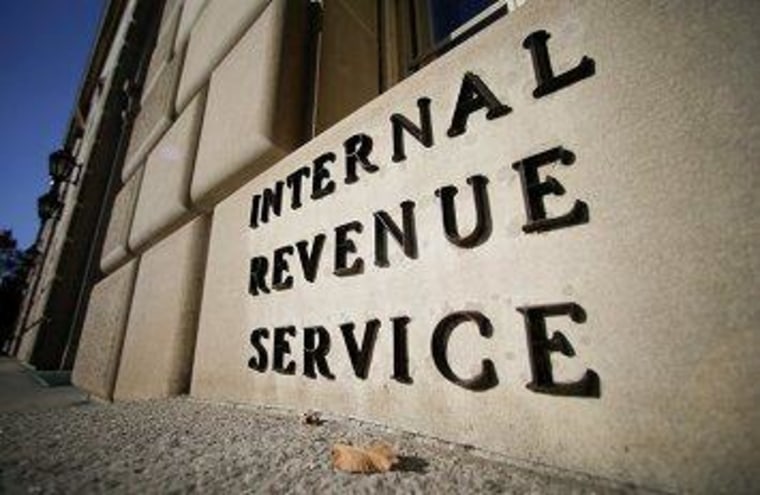Here's a sentence from today's Politico that's worth keeping in mind: "Top GOP sources acknowledge that it's highly unlikely the White House was directly involved in the IRS mess, but the probe is sure to add to the Republican-spun narrative of Democratic, Big Government overreach."
I see. Republicans realize that the IRS controversy really doesn't have anything to do with President Obama -- who has publicly condemned the IRS's actions as "outrageous" -- and to characterize this as some kind of White House scandal is absurd. But that's secondary to the "narrative."
Some of us, however, care less about narratives and more about facts.
And with that in mind, the Washington Post appears to have some additional relevant facts this morning.
Internal Revenue Service officials in Washington and at least two other offices were involved with investigating conservative groups seeking tax-exempt status, making clear that the effort reached well beyond the branch in Cincinnati that was initially blamed, according to documents obtained by The Washington Post.IRS officials at the agency's Washington headquarters sent queries to conservative groups asking about their donors and other aspects of their operations, while officials in the El Monte and Laguna Niguel offices in California sent similar questionnaires to tea-party-affiliated groups, the documents show.
The story, at first blush, appears to be growing. This is not just about some low-level staffers in Cincinnati, we're now hearing, there's reason to think conservative groups elsewhere were subjected to increased scrutiny while seeking tax-exempt status, too.
And to be sure, the underlying point hasn't changed -- it's incumbent on the IRS to be even-handed. Full stop. To apply different standards to different groups based on ideology is simply unacceptable. Full stop. Those at the IRS who applied different standards should be held responsible and policies should be put in place to prevent potential abuses in the future. Full stop.
But there's something about this Washington Post story that gives me pause. The article points to other IRS offices scrutinizing tax-exempt applications for other conservative groups, which has lead conservatives to say, "See how widespread the abuses have been?"
Except, that may be an overly simplistic look at this story.
To be sure, IRS offices need to play fair, and that applies to every group seeking the tax benefit. But the zeal to pursue this controversy doesn't mean we should automatically jump to conclusions -- today's Post report noted "several other occasions" in which IRS officials "sent conservative groups detailed questionnaires about their voter outreach and other activities, according to the documents."
But that doesn't tell us much, despite being a front-page, above-the-fold article. Were there legitimate reasons to ask the conservative groups to complete detailed questionnaires? Quite possibly, yes. Unfair treatment isn't right, but if we've reached the point at which any extra IRS scrutiny of any conservative group is reflexively seen as bias, that's not right, either.
I want to be careful not to give the wrong impression: the right has a legitimate beef. Indeed, the IRS has acknowledged wrongdoing, and there can be no doubt that this is a serious controversy based in reality.
I also believe that it's easy to get ahead of ourselves on this. Alec MacGillis pauses today to offer a counterpoint to many of the assumptions surrounding this story.
Yes, the IRS employees in Cincinnati, looking for shortcuts to process the wave of applications, used conservative-themed catchwords to filter for groups that were perhaps too election-focused to merit 501(c)(4) status. But there is a plausible explanation for this: Most of the campaign-minded applications they were getting were conservative! This is a credit to the tea party movement, which for a while was generating levels of grassroots activism that the left could only envy. Why did the IRS not screen for "corporate greed" or "plutocracy" or "inequality"? Well, maybe because those words would have netted precious few applications to scrutinize.Not to mention that the applications from tea party groups demanded special attention for another reason: These groups were proudly political! Even if you take at face value the movement's initial claim to be something all its own, something more than just the conservative wing of the Republican Party, its whole purpose from the get-go was to orient American politics and government toward its constitutional roots by intervening in elections at all levels, starting with Republican Party primaries. The tea party groups' whole mission called their suitability for 501(c)(4) status into question.
It's another perspective to keep in mind as the controversy unfolds.
